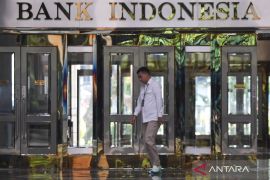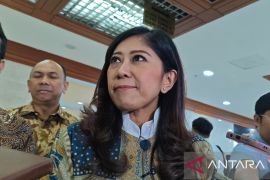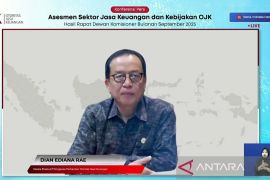Governor of Bank Indonesia Perry Warjiyo stated that the forecast for the global economy to grow 5.7 percent this year will be driven by economic improvements in the United States (US) and China that are occurring at a swifter pace than other nations.
"The global economy is forecast to grow at a higher rate than earlier estimated, with the global recovery process becoming increasingly uneven between countries," he remarked at a virtual press conference in Jakarta on Tuesday.
According to Warjiyo, economic recovery in the United States is expected to be stronger in tandem with the vaccination process that is running smoothly and the addition of a larger fiscal stimulus.
Meanwhile, economic recovery in China that is higher is supported by improving domestic and global demand.
Furthermore, stronger global economic recovery is confirmed by the development of several early indicators in March 2021, such as the Purchasing Managers' Index (PMI), consumer confidence, and increasing retail sales in several nations.
The governor believes that the volume of trade and global commodity prices also continued to rise, thereby supporting an improvement in the export performance of higher developing nations, including Indonesia.
On the other hand, Warjiyo gauged that financial market uncertainty and the volatility of US treasury yields is still ongoing in line with improving economic recovery in the United States and market perceptions of the direction of the Fed's policy.
The governor explained that this development had an impact on lower capital inflows to most developing nations and impacted the currency pressure in these countries, including Indonesia.
Warjiyo noted that the rupiah exchange rate, as of April 19, 2021, depreciated by 1.16 percent, on an average, and 0.15 percent point-to-point as compared to the level at March-end of 2021.
This development occurred in line with the ongoing financial market uncertainty that restrained the inflows of foreign portfolio investment into the domestic financial market.
In the wake of this development, the rupiah, until April 19, 2021, recorded a depreciation of some 3.42 percent (ytd) as compared to the level at the end of 2020, or relatively lower than other developing nations, including Brazil, Turkey, and Thailand.
"BI continues to strengthen the rupiah exchange rate stabilization policy in accordance with its fundamentals and the operation of market mechanisms through the effectiveness of monetary operations and the availability of liquidity in the market," he stated. Related news: Domestic economic recovery underway, global economy starts to rebound
Related news: President keeps close eye on current global economic growth
EDITED BY INE
Translator: Astrid H, Azis Kurmala
Editor: Suharto
Copyright © ANTARA 2021












